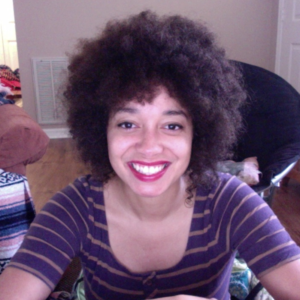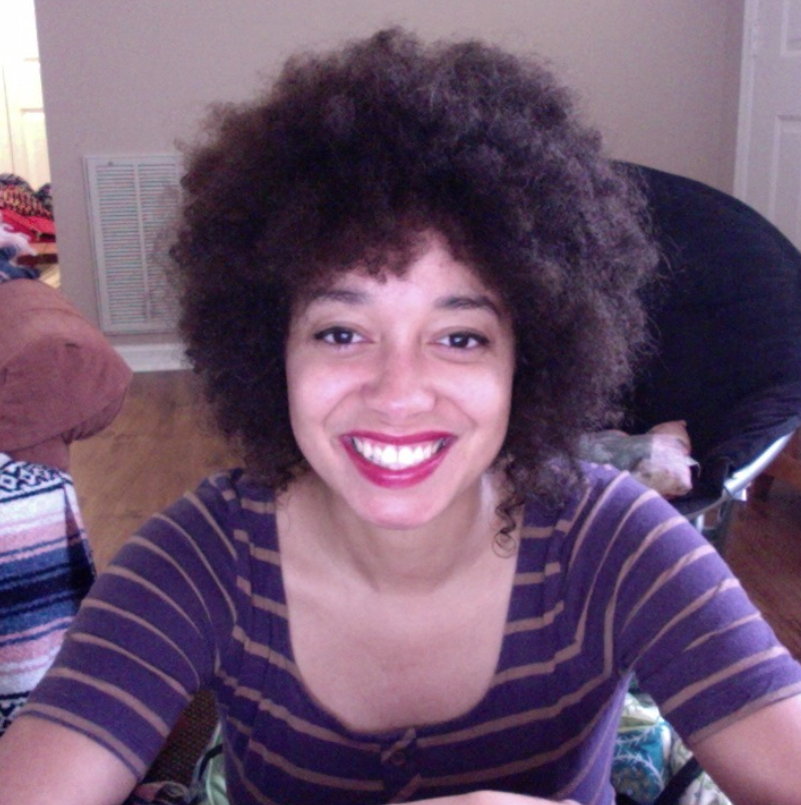
What comes to your mind when you hear the term “vegan”? While I don’t want to assume to know what you’re thinking, if mass media is any indicator, you’re probably thinking of a radiant, smiling, thin white woman surrounded by baskets full of fresh fruits and veggies—and maybe puppies– that she likely grew in her wholesome garden (with a decorative Buddha statue, no less), who is probably also the proprietor of an Etsy store. This is exactly why Aph Ko created Black Vegans Rock—a list of 100 black vegans intended to highlight that vegans of color do in fact exist. Critics of Ko’s efforts claim that there is no need to racialize veganism because, in Obama’s post-racial American, we’re all in this together for the animals. Aside from wanting to highlight the mainstream erasure of vegans of color, Aph and her sister Syl present a distinctly racialized paradigm to advocate for animal liberation. In short, Syl argues that:
“White” is not just the superior race; it is also the preferred mode of being. Residing at the top of the racial hierarchy is the white human, where species and race coincide to create the master being. And resting at the bottom as the abject opposite of the human, of whiteness, is the (necessarily) nebulous notion of “the animal.”
Aph continues:
“Comparing and contrasting the literal/physical violations these subjects [e.g., human African chattel slaves and factory farm chattel animals] experience misses the conceptual boat because the reason why they are each oppressed is precise because they ALL are citizens of the same sub-human space. Naturally, their oppressions might physically resemble one another because they have a common oppressor. They are not being oppressed because they are “like” each other. They are being oppressed because they have been labeled as “less-than-human” where human is defined as the superior and ideal white species.”
Moreover, Ko says the seeming exhalation by the mainstream media of black former gang members turned vegan gardeners smacks of “respectability politics”:
“Because mainstream veganism is saturated with Eurocentric logic, the assumption is that black folks who go vegan are “transcending” their negative situations, not only in terms of their health but also in terms of their racial location.”
Most notable among these reformed “gangstas” is Ron Finley, also known as the “Guerilla Gardner.” Mr. Finley’s 2013 TedTalk has been viewed over 2 million times, and he was also prominently featured in the 2015 documentary “Can You Dig This?” (which is currently available on Netflix). Finley shared:
“Within two miles of my home, there are four grocery stores. In that same radius, there are 86 fast food joints…31 liquor stores… Drive-thrust is killing more people than drive-bys… That’s why growing your own food is so defiant. It disrupts a system that is in place.”
Rather than mainstream acceptability and assimilation, Finley’s cause is resistance. Aph Ko further asserts this notion, stating:
“Ron isn’t just digging holes in the ground and planting food for fun. He’s fighting a white supremacist capitalist system that has shoved certain bodies into communities where there’s no access to fresh foods and good healthcare. It’s sad that black people need to plant gardens on curbs because our government doesn’t care that these bodies are nutritionally starving. This is an epidemic that goes hand-in-hand with communities in Flint, Michigan drinking poisoned water. This isn’t a romantic, “feel good” story. This is fucked up—plain and simple.”
Recently, the issues of environmental stewardship and access to natural resources have been highlighted by the Flint Water Crisis and Water Protector demonstrations at Standing Rock in the Dakotas. In both cases, those impacted are communities of color. Just last year in Pittsburgh, activists revealed evidence that 31 percent of those living within oil-train blast zones—areas where the probability of explosion and exposure to chemicals that may cause lung disease is significantly increased– are non-white. This issue is, however, not a distinctly American issue, as Viceland Channel’s show, RISE also highlights indigenous people across North and South America systemically marginalized and restricted in their rights to viable natural resources and land sovereignty. These instances of environmental injustice lend credence to accusations of environmental racism and Ko’s foundational theory that the road of environmental injustice, like racism, sexism, and speciesism, winds its way back to a common oppressor/oppressed paradigm that is inherently connected to an all-encompassing system of oppression, rather than a “separate but equal” notion of inequalities. Whether or not Ko’s theory of animal liberation resonates with you, her Black Vegan list repositions black veganism and food justice activism such as Finley’s outside of the lens of consumptive white audiences looking for stories of black redemption and legitimizes them for the subversive acts of resistance they are. Also, it allows black vegans and the public at large the rare opportunity to see vegans of color en masse and not marginalized within the movement. So now when I ask what comes to mind when you hear the word “vegan,” you can easily imagine her or him.
Shanna Houser Freelance Writer
editor@urbanmediatoday.com



































